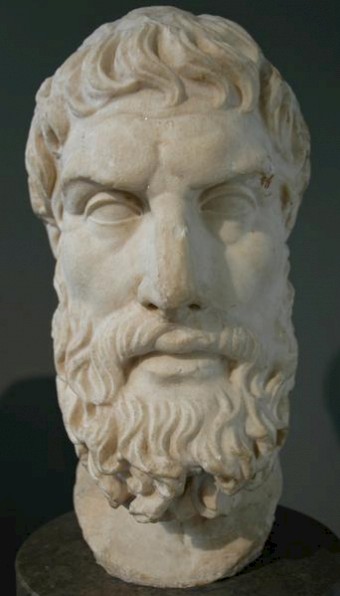Epicurus
Epicurus (342-271): Greek philosopher, founder of a school that is named after him, Epicurism.

We live happiest when we are free from the pains of life, and a virtuous life is the best way to obtain this goal. This is, in a nutshell, the view of the Samian philosopher Epicurus.
In his opinion, human suffering has two causes: fear for the gods and fear of death. Both fears are unnecessary. The gods are not interested in human beings; the eternal ones have their own, happy lives, and leave humankind alone. Nobody has to be afraid for divine intervention; as a corollary, nobody can count on supernatural support or favors.
Fear of death is unnecessary too. Unfortunately, fear for punishments in hell can spoil our lives, and this angst leads us to the pursuit of false certainties like power and possessions, which do not make us happy and only cause envy, greed, hatred, war, and cruelty. But there is no need to be afraid of death, because our bodies and souls disintegrate into the atoms from which they were made. Once we no longer exist, we can suffer no more.
It is best to enjoy life as it is: a good meal, a nice garden, the company of friends. Often, Epicurism has been regarded as some sort of hedonism, but Epicurus always stresses that one should not overindulge. There's a measure to everything.
In Antiquity, Epicurism was the most popular of all philosophical schools, a popularity which it partially owed to the fact that its founder had explained his thoughts in several maxims, which even the illiterate could remember. Predictably, Christian philosophers attacked Epicurus' ideas about the afterlife and divine providence.
Literature
A biography was included in the Lives of Eminent Philosophers by Diogenes Laertius (here).